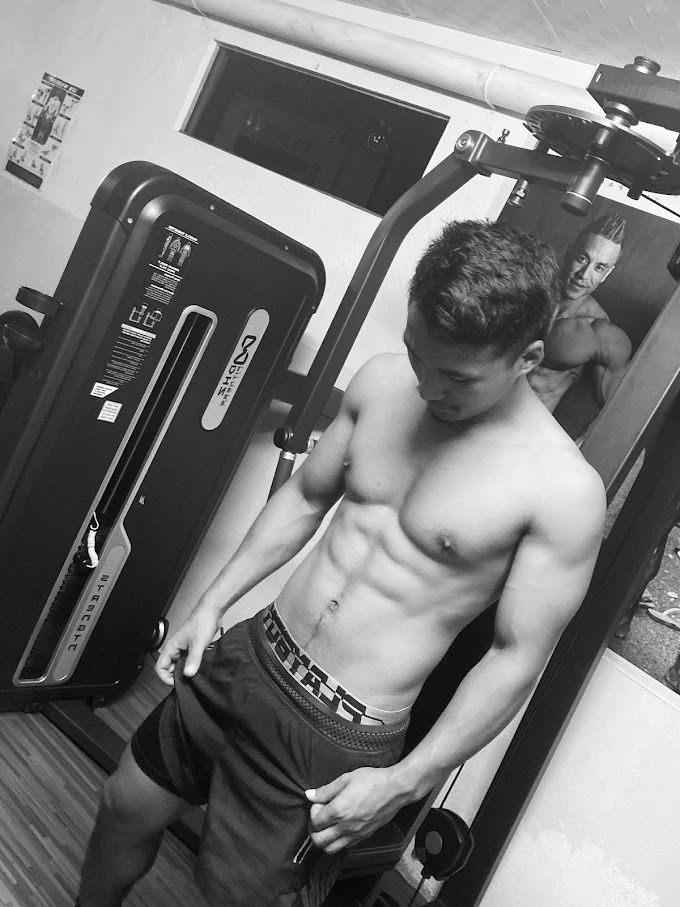Best Diet Plan In Nepal For Gym Beginners
Are you a gym beginner in Nepal looking for the perfect diet plan to complement your fitness journey? Embarking on a fitness regimen is an exciting step, and your diet plays a crucial role in achieving your fitness goals. In this article, we will guide you through a comprehensive diet plan tailored for gym beginners in Nepal. Whether you're aiming to build muscle, lose weight, or enhance your overall fitness, we've got you covered.
Table of Contents
1. Introduction: The Significance of a Balanced Diet
2. Setting Your Fitness Goals
3. The Foundation: Nutrient-Rich Foods
- Essential Macronutrients
- Micronutrients for Vitality
4. Pre-Workout Nutrition
- Energizing Carbohydrates
- Protein for Muscle Preparation
5. During Workout Hydration
6. Post-Workout Recovery
- Protein-Packed Options
- Replenishing Carbohydrates
7. Incorporating Healthy Fats
8. Planning Your Meals
9. Sample Diet Plan
- Breakfast Options
- Lunchtime Fuel
- Snack Smartly
- Dinner Delights
10. Avoiding Overeating
11. Staying Consistent and Patient
12. Supplements: To Take or Not to Take?
13. Frequently Asked Questions
Introduction: The Significance of a Balanced Diet
Before you even step into the gym, it's important to understand that a balanced diet is the cornerstone of your fitness journey. Food is your body's fuel, providing the energy required to power through workouts, repair muscles, and recover effectively. A well-rounded diet ensures you're equipped for success.
Setting Your Fitness Goals
Define your fitness goals clearly. Whether you're aiming for muscle gain, weight loss, or enhanced endurance, your diet should align with your objectives. This will guide your calorie intake and nutrient distribution.
The Foundation: Nutrient-Rich Foods
Your diet should consist of essential macronutrients: carbohydrates, proteins, and fats. Carbs provide energy, proteins repair and build muscles, and fats support various bodily functions. Micronutrients like vitamins and minerals are equally vital for overall health.
Pre-Workout Nutrition
Fuel up before hitting the gym. Consume a mix of energizing carbohydrates and protein to prepare your body for an intense workout. Whole-grain bread, fruits, and lean proteins are excellent choices.
During Workout Hydration
Staying hydrated during exercise is non-negotiable. Keep a water bottle nearby and take small sips between sets to maintain optimal performance.
Post-Workout Recovery
After your workout, prioritize post-workout nutrition. Option for protein-packed foods like lean chicken or plant-based alternatives to aid muscle recovery. Replenish glycogen stores with carbs from sources like sweet potatoes.
Incorporating Healthy Fats
Don't fear fats – they're essential for hormone regulation and overall health. Choose sources like avocados, nuts, and olive oil to incorporate healthy fats into your diet.
Planning Your Meals
Structure your meals to maintain energy levels throughout the day. A balanced breakfast, a protein-rich lunch, healthy snacks, and a well-rounded dinner will keep you on track.
Sample Diet Plan
- Breakfast Options: Oatmeal with fruits, Greek yogurt, and a handful of almonds.
- Lunchtime Fuel: Grilled chicken salad with mixed greens, quinoa, and a variety of colorful veggies.
- Snack Smartly: Hummus and carrot sticks or a small protein shake.
- Dinner Delights: Baked fish with steamed broccoli and brown rice.
Avoiding Overeating
Listen to your body's hunger cues and practice portion control. Overeating can hinder your progress, so stay mindful of your intake.
Staying Consistent and Patient
Results take time. Stay committed to your diet plan and exercise routine, and remember that consistency is key.
Supplements: To Take or Not to Take?
Supplements can complement your diet, but they're not a substitute for real food. Consult a healthcare professional before introducing supplements.
Frequently Asked Questions
1. Can I skip meals to lose weight faster?
Skipping meals can slow down your metabolism and lead to muscle loss. It's better to eat balanced meals and control portions.
2. How much water should I drink during workouts?
Aim to drink around 8 ounces of water every 15 minutes during your workout to stay hydrated.
3. Are cheat meals allowed in this diet plan?
Occasional cheat meals are fine, but don't let them become a regular habit. Moderation is key.
4. Should I avoid carbohydrates completely?
Carbohydrates are essential for energy. Option for complex carbs and control portions instead of cutting them out entirely.
5. Can I follow this diet plan if I have dietary restrictions?
Absolutely. This diet plan can be adapted to accommodate various dietary preferences and restrictions.
In conclusion, your journey as a gym beginner in Nepal can be immensely rewarding with the right diet plan. By incorporating nutrient-rich foods, staying hydrated, and focusing on post-workout recovery, you'll be well on your way to achieving your fitness goals. Remember, consistency and patience are vital, so stick to your plan and celebrate your progress along the way.








